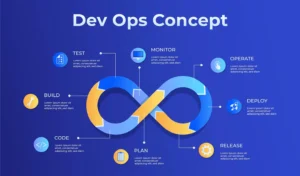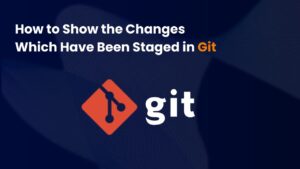DevOps Interview Questions and Answers That Can Do Wonders DevOps Interview Questions and Answers for Freshers and Experienced Candidates. Here we have piled up a various number of frequently asked Interview questions and answers related to DevOps by 3RI Technologies. We trust and believe that these Interview questions and answers related to DevOps turn out to be the turning point of your career and help you with the best job opportunities in the Networking Industry. The set of questions and answers mentioned here are specially designed by our expert team of DevOps professionals, keeping in mind the top MNC interview patterns and as per their expectations. Apart from all this, if you wish to take a course in DevOps, you can definitely rely on one of the most trusted and most reliable training institutes in Pune at 3RI Technologies. Please go through our website for more details of the DevOps course or any other course so simply give us a call. DevOps Interview Questions & Answers for the job placements at DevOps Training in Pune Below we have listed down the most commonly asked interview question and answers of DevOps for technical interviews. The listed question and answers are appropriate for both freshers as well as for experienced candidates for all kinds of levels. The interview question and answers here are for beginners to the advanced level of all the DevOps professional candidates. Although you are a fresher or just a beginner, you will easily understand all these listed questions and answers and the explanations we have given here. These questions and answers will help you take your career to new heights. The following Interview Questions and Answers of DevOps will direct you to undergo the following Certifications
- DevOps Test Engineering(DTE)
- DevOps Foundation
- DevOps Leader(DOL)
Q1. What do you mean by the folder structure of roles in ansible? Ans:
- roles/
- common/
- tasks/
- handlers/
- files/
- templates/
- vars/
- defaults/
- meta/
- webservers/
- tasks/
- defaults/
- meta/
Where common is role name, under tasks – there will be tasks (or) plays present, handlers – to hold the handlers for any tasks, files – static files for copying (or) moving to remote systems, templates- provides to hold jinja based templating , vars – to hold common vars used by playbooks. Q2. What is the format of Jinja2 templating in Ansible playbooks? Ans: Format {{ foo.bar }} The vars within the {{ }} braces are replaced by ansible while running using a template module. Q3. What can be the possible output of the docker inspect command? Ans: docker inspect [OPTIONS] NAME|ID [NAME|ID…] Options
| Name, shorthand | Default | Description |
| — format, -f | Format the output using the given Go template | |
| –size , -s | Display total file sizes if the type is a container | |
| –type | Return JSON for a specified type |
Q4. Which commands can be used for checking the resource utilization by the docker containers? Ans: docker stats [OPTIONS] [CONTAINER…] Options
| Name, shorthand | Default | Description |
| — all, -a | Show all containers (default shows just running) | |
| –format | Pretty-print images using a Go template | |
| –no-stream | Disable streaming stats and only pull the first result | |
| –no-trunc | Do not truncate output |
Q5. How can you execute some of the task (or) play on any of the local hosts while executing the playbook on different hosts in ansible? Ans: As far as ansible is concerned, there exists a type of module named delegate_to, in this particular module section provides the particular host (or) hosts where your tasks (or) task need to be run.
| tasks: | |
| – name: ” Elasticsearch Hitting” | |
| uri: url='{{ url2 }}_search?q=status:new’ headers='{“Content-type”:”application/json”}’ method=GET return_content=yes | |
| register: output | |
| delegate_to: 127.0.0.1 |
Q6. Name a few of the keys or Aspects and principles involved behind DevOps? The basic issues or the principles behind DevOps are
- Regular humidity
- Transportation
- Safety
- Infrastructure such as code
- Monitoring
Q7. What are the fundamental DevOps used to develop applications, infrastructure? DevOps for basic functions application development
- Legal Insurance
- The part of the test
- packages
- Construction law
- Implementation
And in case of Infrastructure
- Structure
- Posting
- Settlement
- Implementation
Q8. Describe how the “infrastructure framework” can be made run or how it can be implemented by AWS? Ans: AWS,
- This JSON item will be held in file formats
- After CloudFormation service will do, delete, update, etc. working on the cord
- The code will be for JSON infrastructure
- Templates can be implemented through AWS and then succeeded
Q9. Name some of the most popular tools for devices? Ans: Here are a few devices that are very much popular with DevOps
- Jenkins
- Be aware
- Nagios
- Io
- Place a place
- Accurate
- Tag
- Elk (Elasticsearch, Logstash, Kibana)
- Jenkins
- collecting / collecting
Q10. Describe this type of initiative? Ans: Enter the HTTP requests
- Printed
- Success
- Erase
- Users
- Head
- placement
- connect
- Be aware
- choice
Q11. What is the formant of DevOps? Ans: Few of the best methods to be followed in DevOps for general use. . When symptoms repeatedly acknowledge people who are less than you and your association will carry on blindly as well as endure, which will essentially develop a very preventative approach. Here are a few ideas about DevOps which include the following:
- DevOps are a system
- DevOps Teams should separate
- Connect to the same DevOps?
- DevOps mean productivity management
- DevOps will resolve all of our problems
- DevOps development is a market for controlling
- DevOps did not do IT operations.
- DevOps have not developed the development.
- We can not Devops – We have doubts
- We can not Devops – Only for us
Q12. For what all a Memcached can be used for? Ans:
- Community networks -> Cache Sections
- Distribution section -> Cookie / Profile profile
- Topic Content -> HTML / Web Site Configuration
- E-Commerce -> Meeting Codes and HTML
- Site services -> Weightlifting data
- Communication -> Cache Cache
- sports and recreation -> the next session
Q13. What can be done with the help of Memcached? Ans: Memcache help in
- Accelerate the application process
- Reduce the number of applications for recovery data
- Decide what is stored and what’s not
- accessing text I / O ((effectiveness)
Q14. What are some of the drawbacks of Memcached? Ans: A drawback of Memcached is
- It is a permanent database of data
- There is a specific application
- No database
- This can not be cached
Q16. Which are some of the most popular DevOps tools? Ans: The most popular DevOps tools are mentioned below:
- Git: version control system tool
- Selenium: continuous testing tool
- Jenkins: a continuous integration tool
- Nagios: continuous monitoring tool
- Puppet, Chef, Ansible: configuration management and implementation tools
- Docker: containerization tool.
Q17. What are some of the technical benefits of using DevOps? Ans: Some of the Technical benefits of using DevOps are:
- Continuous software delivery
- Resolution
- Less complex problems to solve
Q18. What are some of the business benefits of using DevOps?
- Highest payout feature
- Additional time available to add value (rather than repairs/maintenance)
- Active and active areas







